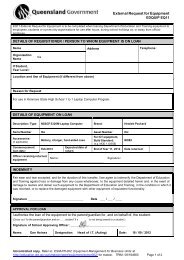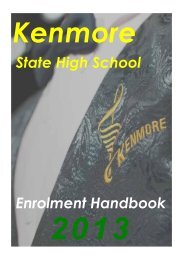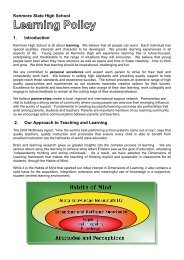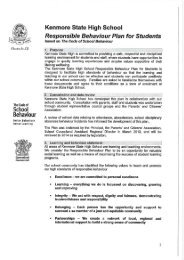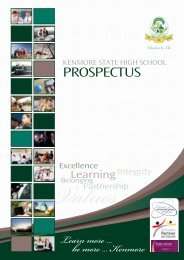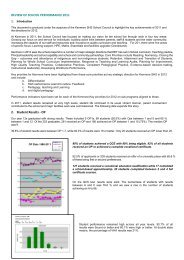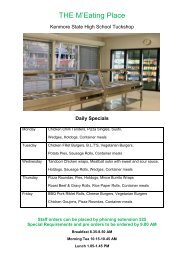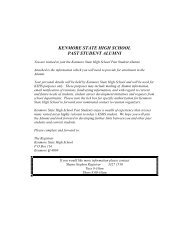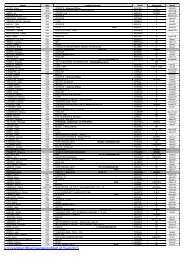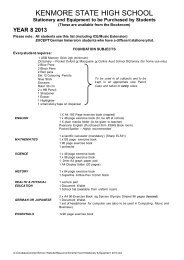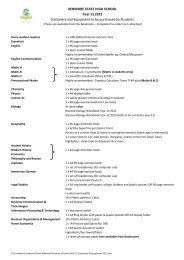QCE Handbook - Queensland Studies Authority
QCE Handbook - Queensland Studies Authority
QCE Handbook - Queensland Studies Authority
You also want an ePaper? Increase the reach of your titles
YUMPU automatically turns print PDFs into web optimized ePapers that Google loves.
6. Learning projects<br />
A learning project allows a learner to design and undertake an independent and unique<br />
short program of learning that is separate from any established school, training or other<br />
educational program.<br />
The learner develops employability and lifelong learning skills in one of three contexts:<br />
• Community<br />
• Self-directed<br />
• Workplace.<br />
A learning project belongs to the Enrichment courses of study, where “enriched” is defined<br />
as “more highly developed knowledge and skills”. A learning project is about achievable<br />
and demonstrable learning, not just participation.<br />
A learning project is of 60–80 hours duration, (including a minimum of 20 hours planning<br />
and 40 hours implementing and collating evidence). Successful completion of a learning<br />
project contributes 1 credit from the Enrichment category towards the learner’s <strong>QCE</strong>. A<br />
learning project must be completed within 18 months of approval, and be submitted by the<br />
last day of Term 3, Year 12, for credit to be included in that year’s <strong>QCE</strong>.<br />
Only one project within a particular context may be undertaken from any given provider.<br />
6.1 Employability and lifelong learning skills<br />
A learning project must provide the learner with the opportunity to show employability and<br />
lifelong learning skills.<br />
Employability and lifelong learning skills<br />
Capacity to work and<br />
learn independently<br />
Communication<br />
Initiative and<br />
enterprise<br />
Planning and<br />
organising<br />
Problem solving<br />
Understand and apply new knowledge and<br />
information.<br />
Communicate effectively with others using a range of<br />
spoken, written, graphic and other nonverbal means<br />
of expression.<br />
Be resourceful in seeking and applying knowledge,<br />
information and the translation of ideas into actions,<br />
in ways that contribute to innovative outcomes.<br />
Plan and organise one’s own work activities; make<br />
good use of time and resources; sort out priorities<br />
and monitor performance; set goals; locate, sift and<br />
sort information in order to select what is required<br />
and present it in a useful way; manage time and<br />
priorities; be resourceful.<br />
Apply problem-solving strategies in purposeful ways<br />
to achieve an outcome in situations where the<br />
problems and solutions are evident as well as in new<br />
or creative ways.<br />
Community<br />
Self-directed<br />
Workplace<br />
<br />
<br />
<br />
<br />
<br />
<strong>Queensland</strong> <strong>Studies</strong> <strong>Authority</strong> August 2011 | 29



